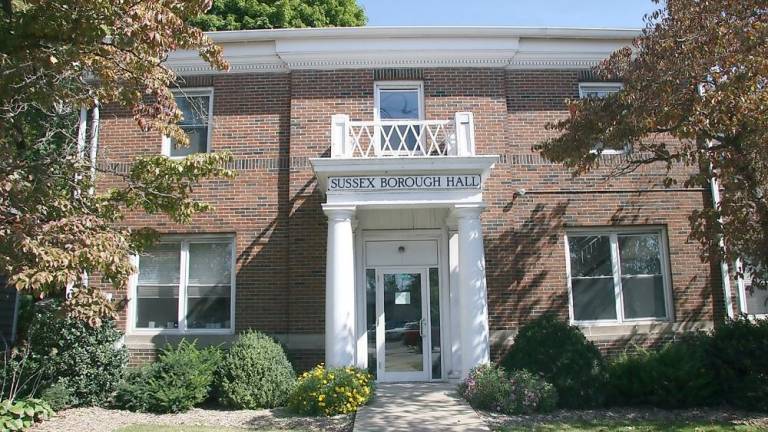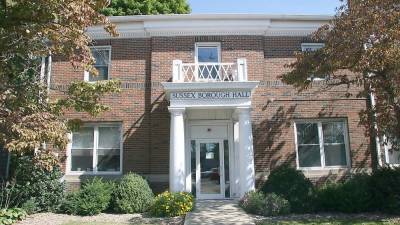Sussex reaches tipping point with $8.3 million in water and sewer debt
Sussex. With little appetite to increase rates, the borough council has been using fund balance money to make ends meet.

The Sussex Borough Water and Sewer Department has reached a tipping point. Running out of money from a water and sewer rate hike several years ago, the borough for the last several years has resorted to using some of its surplus to balance the budget.
According to borough auditor Tom Ferry of Weilkotz & Co., the water and sewer department started fiscal year 2020 with $452,000 in fund balance and finished the year with $352,000.
“That’s a trend we pretty much knew that was going to happen when we did those four-and-a-half percent increases years ago, that they would reach a peak,” Ferry said. “And then we would have to use fund balance to balance the budget. “
In 2020, the department collected $2.2 million in water and sewer rents but spent $2.6 million. If the utility uses $100,000 from fund balance for the next two years, its cash flow will dry up.
“We did everything we could as far as forming the budget to try and hold everything flat,” said borough chief financial officer Michel Marceau. “But as you can see, collections have continued to lag with, quite frankly, no end in sight.”
Councilman Charles Fronheiser said for the past three years he has been recommending a 2 percent increase, but that never happened. Marceau said Ferry has been recommending a 4.5 percent rate increase.
But there was no appetite among council member for that kind of increase.
Additionally, Gov. Phil Murphy, at the beginning of the Covid-19 pandemic, issued an executive order that prohibited utilities from shutting off service to customers who didn’t make their payments. That executive order is due to expire on Jan. 1, 2022.
“There’s no guarantee he won’t extend that,” Marceau said. “If he extends it, I don’t even know if we’re allowed to do a rate increase. I don’t know if I’m reading this executive order properly, but things have just not turned around, and the situation is getting more and more dire each year.”
The water and sewer utility debt is about $8.3 million. The state makes a calculation to make sure revenues are paying for expenditures. The utility had a statutory excess of $17,000, making it self-liquidating.
“Debt service is what it is,” Marceau said. “There’s really nothing you can do about it. It’s the statutorily required amount that we have to pay out at a minimum. Until we can get these projects done, and grant money and debt paid off, there’s really nothing you can do about those payments.”

